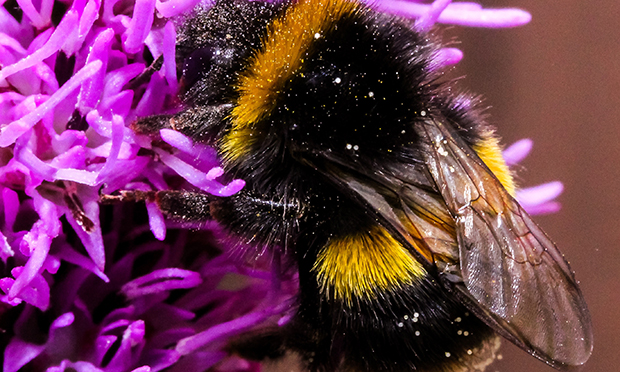Hackney lawyers reveal pesticide industry is ‘making mockery’ of EU ban

Buzz cut: honey bee populations are in decline across Europe. Photograph: Pixabay
A Hackney law firm has slammed the EU for “turning a blind eye” to pesticide manufacturers who are sidestepping a ban on products that threaten bee colonies.
Research by ClientEarth, in partnership with PAN Europe and Bee Life, shows the industry is flouting regulations by applying for emergency exemptions to use neonicotinoids – widely thought to be responsible for Europe’s declining honey bee populations.
Since a 2013 ruling by the EU Commission outlawed four pesticides – three of which are neonicotinoids – 62 special exceptions have been granted.
ClientEarth lawyer Dominique Doyle said: “There is no excuse to continue using neonicotinoids, and in many cases, applicants don’t even bother to provide one.
“The Commission is turning a blind eye to industry influence by accepting applications from, or backed by, Bayer, Syngenta and other pesticides manufacturers.
“Bayer, Syngenta and BASF are at the same time challenging Commission decisions to ban the bee-harming pesticides in EU Court.
“In granting wide-scale requests which breach EU law, it makes a mockery of Europe’s ban on bee-harming pesticides.”
The EU Commission says that special permission to use the banned pesticides should only be granted in exceptional circumstances, but researchers found that countries failed to properly justify the use of these products in the majority of requests.
PAN Europe pollinator expert Martin Dermine said: “EU countries are exploiting the emergency exception rule to circumvent pesticide bans and maintain a model of agriculture that is outdated: high-polluting, low efficiency and low quality.
“It is also unacceptable that 44 per cent of the requests are made by industry alone, and that national governments accept them.”
ClientEarth has urged the EU Commission to “significantly strengthen the law and put in place strict rules to avoid the current systematic abuses by EU countries”.
